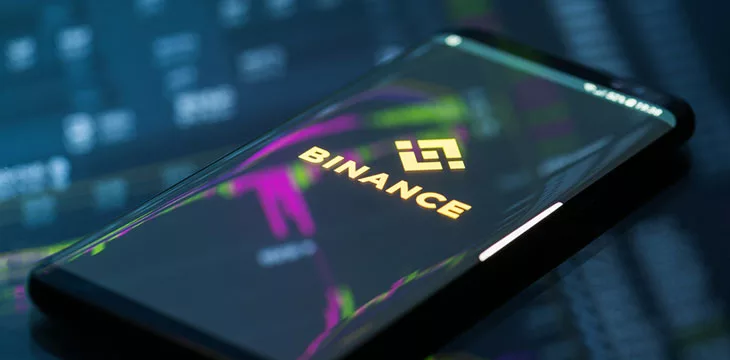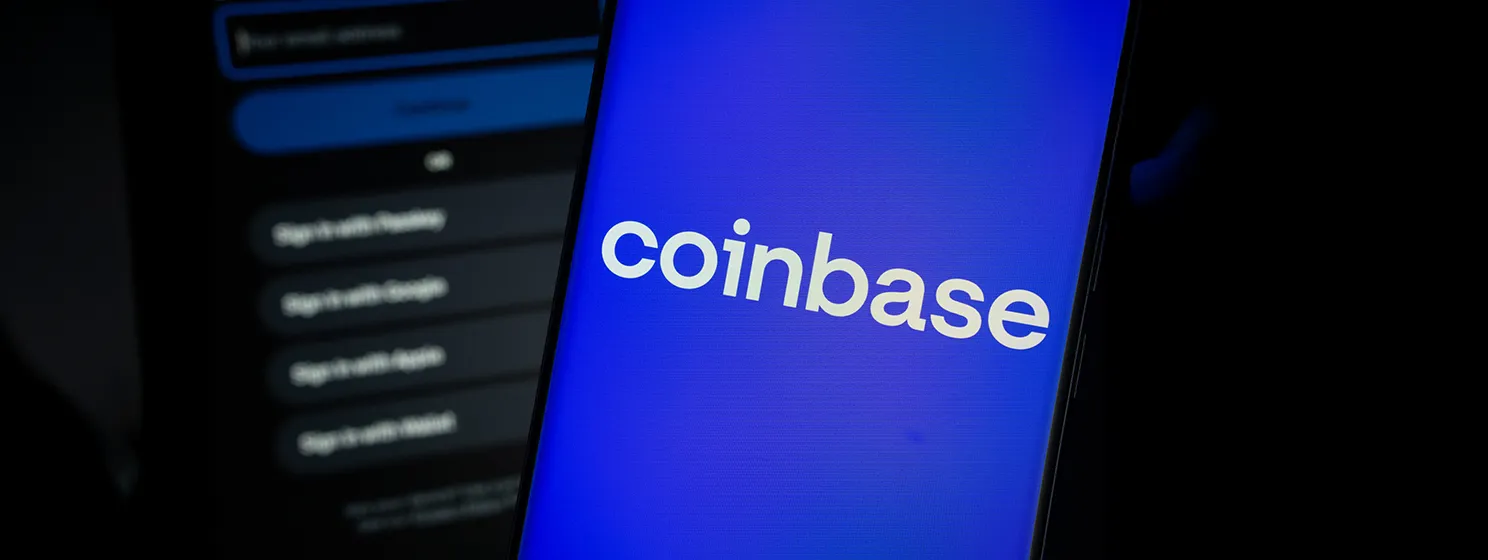|
Getting your Trinity Audio player ready...
|
Binance might not have to completely shut down its U.S.-facing digital asset exchange while it defends against a federal securities lawsuit, depending how the next few days go.
On Tuesday, U.S. District Judge Amy Berman Jackson held a hearing in a District of Columbia court to consider whether to grant a Securities and Exchange Commission (SEC) emergency request to freeze the assets of Binance.US, the U.S.-facing offshoot of Binance Holdings Limited (BHL), operator of the international Binance.com exchange.
The SEC’s request followed last week’s filing of 13 civil charges against Binance and its founder Changpeng ‘CZ’ Zhao for, among other things, offering unregistered securities to U.S. customers and funneling Binance.US customer cash out of the country to CZ-controlled entities as part of a “calculated evasion” of U.S. law.
The SEC’s suit provided ample evidence that the purported leaders of Binance.US were in reality CZ’s puppets and that he was in control of the U.S. exchange’s bank accounts as well as its customers’ digital assets. As such, the SEC sought an emergency asset freeze enforcement action to prevent CZ—who appears to enjoy taunting U.S. authorities from Dubai as to their lack of jurisdiction over him—from draining those accounts dry.
On Monday, Binance’s legal representatives filed two proposals they hoped would satisfy the SEC without freezing the U.S. cryptocurrency exchange’s assets. One of these proposals was filed by the team representing BHL and CZ, the other by the team representing BAM Trading Services and BAM Management US Holdings, the CZ-controlled companies that claim to be in charge of Binance.US.
(These dual filings are apparently intended to maintain the illusion that Binance.US is an independent entity. This is despite documented evidence that its CEOs couldn’t even buy branded hoodies for staff without CZ’s say-so, and that CZ and his minions could move hundreds of millions out of Binance.US bank accounts without even informing said CEOs.)
Early Tuesday, Judge Jackson issued an order instructing the defendants to provide the court with a list of the differences between these two proposals. Jackson also ordered the SEC to inform the court “what changes need to be made … to allay the SEC’s concerns regarding assets in the United States and render the order acceptable to the government.” Jackson cautioned all sides not to submit any “additional argument or explication” at this time.
Later Tuesday afternoon, Jackson declared that the two sides were “not that far apart” and ordered them to continue haggling under the supervision of a magistrate judge. Jackson has given the parties until 5 p.m. on June 15 to report back on their progress before she makes any final decision regarding the SEC’s request to freeze funds.
Canellos smash!
Before Tuesday’s frantic back-and-forth, Monday saw Binance dump a barrage of legal filings in response to the SEC’s suit. Among these filings were further details on the high-priced legal talent CZ has enlisted to lead Binance’s defense.
These include several Gibson Dunn attorneys, including Stephanie Brooker, a former director of the enforcement division of the U.S. Treasury Department’s Financial Crimes Enforcement Network (FinCEN).
Binance has also enlisted the help of some Milbank LLP partners, a couple of former federal prosecutors among them. And then there’s George Canellos, another Millbank partner and a former co-director of the SEC’s Division of Enforcement as well as an Assistant U.S. Attorney for the Southern District of New York.
This last hire earned plaudits from John Reed Stark, former chief of the SEC’s Office of Internet Enforcement, who called Canellos “a uniquely qualified criminal defense all-star lawyer.” However, Stark added that the hiring indicates that Binance is “clearly preparing for a criminal prosecution … but I doubt even Ironman, Captain America and the Hulk could get Binance out from their current perilous legal quagmire.”
Lawyer lawyer, pants on fire
Getting back to the Binance team’s defense, there were two separate filings on behalf of the BHL/CZ and BAM defendants laying out their case against granting the SEC’s asset-freezing request. The arguments contained therein largely overlap so we’ll jam them into one big bunch of lawyerin’ talk.
Of foremost importance, the attorneys argue that Judge Jackson should deny the SEC’s request because granting the freeze would “effectively end” Binance.US by preventing it from paying staff and other expenses, which ultimately would do harm to the exchange’s retail customers.
The attorneys also argue that, since the SEC didn’t do anything to stop Binance.US in the years immediately following its September 2019 launch, the SEC should basically be prevented from bringing any action against Binance now. You know, let bygones be bygones, wash-trades be wash-trades and bank fraud be… well, you get the idea.
Also, taking action against Binance.US would apparently result in unspecified apocalyptic ramifications on a global basis, like something out of the Old Testament, you know, dogs and cats living together, total anarchy. It’s almost as if Binance believes that its dominance of global centralized exchange trading volume has granted the company an entirely unique legal status: Too Big to Comply.
Elsewhere, the attorneys claim that (a) Binance customer funds aren’t currently at risk or will be in the future, (b) the SEC hasn’t properly articulated any compelling reason to seize Binance’s funds, (c) the SEC’s proposed remedies are “untethered” (really ironic choice of words, there) to the charges leveled against Binance and CZ, and (d) the SEC has failed to demonstrate that its charges are likely to succeed.
As part of the “pragmatic resolution” to this impasse, Binance and CZ offered to sign a consent order pledging them to “not transfer assets to BHL, Mr. Zhao, or their affiliated entities.” Furthermore, BHL would agree “to send to the United States all ‘Private and Administrative [digital asset] Keys’ in its possession.” [Emphasis in the original.]
The defendants would also agree to “submit to the Court’s jurisdiction for the limited purpose of ‘implement[ing] and carry[ing] out the terms’ of the Proposed Consent Order (although BHL and Mr. Zhao reserve the right to contest personal jurisdiction otherwise).”
CZ has even promised “not to destroy any evidence relevant to these proceedings,” possibly because it’s illegal to blow-torch computer hard drives on your condo balcony in Dubai.
The attorneys also repeat the crypto sector’s self-exonerating mantra that that “no realistic process currently exists for cryptocurrency issuers to register the offer and sale of digital assets with the SEC or for cryptocurrency exchanges to register as a securities exchange, broker-dealer or clearing agent.” That’s not true, unless of course they mean the SEC won’t allow exchanges to sell whatever tokens they want to whomever they want for whatever they can.
Err BNB
Binance’s attorneys go out on a limb by claiming that the SEC doesn’t have a good shot at proving that Binance’s in-house-supermarket-loyalty-points-backed-by-nothing token BNB is an unregistered security. The SEC has apparently failed to prove that BNB’s value increases based on the ‘efforts of others’ like BHL/CZ/etc. and thus fails to meet all the planks of the Howey test.
The attorneys further claim that, in order to prove that Binance.US was illegally offering or selling unregistered securities, “the SEC must show that BNB was sold as an investment contract (i.e., a security) when it was traded on [Binance.US].” (Emphasis in the original.)
Binance’s defense of BNB is all the more notable given that Binance.com quietly revised its terms of service last week expanding its “exclusive authority to determine which Digital Assets are listed on the platform.” Binance now has the discretion to “convert such Digital Assets to a different type of Digital Asset” without advance notice to customers who held a now-delisted asset and without liability to customers who might suddenly find themselves holding a less desirable asset … such as BNB.
The SEC’s release of senior Binance execs’ chat logs show the utter disdain with which they viewed BNB, with Binance’s chief compliance officer telling another exec that “anyone who takes BNB now is fking brave” and said “the strategy of bnb is to survive for 2 years and f off and in this 2 years try ur bestest not to land in jail.”
BNB’s fiat value took a major hit in the wake of the SEC filing its suit, falling from around US$310 to around $224 in the space of a week. This is a problem, as Binance’s balance sheet is dominated by BNB—or, as a Forbes writer described the token earlier this year, “IOUs of [Binance’s] making sprinkled with crypto pixie dust.”
This is also a problem as it relates to decentralized finance (DeFi) protocols in the BNB ‘ecosystem, such as Venus, which could face over $200 million in liquidations should BNB’s price fall below $220. This would be the worst BNB cockup since a cross-chain bridge was hacked last October, resulting in the improper minting of vast amounts of new BNB tokens.
Venus is not just the leading DeFi money market protocol on the BNB Chain, it’s also an in-house Binance project—even if Binance has since deleted the 2019 announcement of its role in the project’s initiation—meaning the pain of liquidation would be borne by CZ.
BUT… Just in the nick of time, BNB’s downward trend began to reverse itself Tuesday, allegedly due to Binance aggressively buying BNB it doesn’t already own. Given CZ’s demonstrated capacity for both subterfuge and coloring outside the lines, questions are mounting regarding what assets Binance might be using to fund these purchases.
CZ denied that Binance had sold any BTC tokens (or BNB) on Tuesday, while Binance insisted that this week’s abrupt US$750 million influx of Tether’s USDT was simply intended “to ensure stablecoin liquidity across all chains for our users.”
Of course, this is the same crew who publicly celebrated their commitment to regulatory compliance while privately its compliance chief was telling colleagues that “we do not want [Binance].com to be regulated ever.” So take their current assurances with the skepticism they deserve.
Du-bye-bye-bye
With the SEC and the U.S. Commodity Futures Trading Commission (CFTC) both having taken civil actions against Binance and CZ, all eyes are on the Department of Justice (DoJ) to file its highly anticipated criminal charges.
The DoJ’s recent indictments of Russian nationals linked to decade-old crypto crimes offers assurances that, while the DoJ might move more slowly than some would like, it does get there eventually. And Binance’s rich history of criminality offers plenty of avenues for prosecution, including charges under the Racketeering Influenced and Corrupt Organizations (RICO) Act.
CZ might feel smug nestled safely in his home in Dubai, as the United Arab Emirates lacks a formal extradition treaty with the U.S. However, the UAE and the U.S. did sign a mutual legal assistance treaty (MLAT) one year ago that the DoJ believes will “improve and streamline U.S. law enforcement’s ability to obtain and exchange evidence needed for investigations and prosecutions,” including those involving “money laundering, fraud and other serious transnational criminal offenses.”
So, still no extradition imminent, obviously. But if the UAE were to know in advance of CZ’s international travel plans? Oh, hello, Interpol Red Notice…
Follow CoinGeek’s Crypto Crime Cartel series, which delves into the stream of groups—from BitMEX to Binance, Bitcoin.com, Blockstream, ShapeShift, Coinbase, Ripple,
Ethereum, FTX and Tether—who have co-opted the digital asset revolution and turned the industry into a minefield for naïve (and even experienced) players in the market.

 05-11-2025
05-11-2025 





